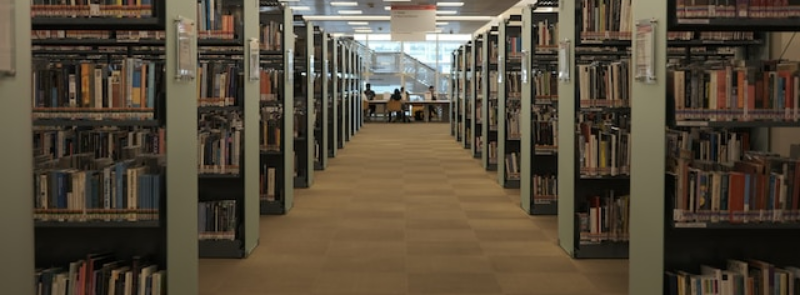
When It Occurs
Every December 10th
Timeline
Days Passed (805)
# Hashtags
#DeweyDecimalSystemDay #MathsIsFun
On December 10th, Dewey Decimal System Day pays tribute to Melvil Dewey and his ingenious library classification system, designed to streamline book organization. With an annual influx of over 1 billion visitors to public libraries, having an accessible system becomes crucial in locating our desired books swiftly and accurately.
History
- Melvil Dewey: Born on December 10, 1851, Melvil Dewey was an American librarian and educator who revolutionized the way libraries organize their collections. He introduced the Dewey Decimal Classification system in 1876.
- Development of the DDC: Dewey created the system to improve the efficiency of library organization and make it easier for patrons to locate materials. The DDC uses a numerical system to categorize books into ten main classes, each further divided into more specific subjects.
- Impact: The Dewey Decimal System quickly became popular and is still used by libraries around the world today. It has undergone numerous revisions to keep up with new knowledge and changing library practices.
Significance
Dewey Decimal System Day holds significant importance for several reasons:
- Library Organization: It celebrates the importance of an organized library system that allows easy access to a vast array of information.
- Educational Contribution: It honors Melvil Dewey's lasting contribution to library science and education.
- Promotion of Libraries: It encourages people to visit libraries, explore their collections, and understand the value of libraries in communities.
How the Dewey Decimal System Works
-
Ten Main Classes:
- 000 – General Works
- 100 – Philosophy and Psychology
- 200 – Religion
- 300 – Social Sciences
- 400 – Language
- 500 – Science
- 600 – Technology
- 700 – Arts and Recreation
- 800 – Literature
- 900 – History and Geography
-
Subdivisions:
- Each main class is divided into ten divisions, and each division into ten sections. This hierarchical structure allows for specific classification of materials.
- For example, 500 (Science) can be divided into 510 (Mathematics), 520 (Astronomy), 530 (Physics), and so on.
-
Decimal Points:
- Decimal points are used to further refine the classification. For example, 510 (Mathematics) can have subdivisions like 511 (General principles of mathematics), 512 (Algebra), etc.
Ways to Celebrate
-
Visit a Library:
- Explore Collections: Visit your local library and explore different sections organized by the Dewey Decimal System. Discover new books and resources you might not have encountered otherwise.
- Library Tour: Take a guided tour of the library to learn more about how the Dewey Decimal System works and how the library organizes its collections.
-
Learn About Melvil Dewey:
- Research: Read about Melvil Dewey's life, his contributions to library science, and the development of the Dewey Decimal System.
- Documentaries and Articles: Watch documentaries or read articles that provide insights into the history and impact of the Dewey Decimal System.
-
Organize Your Own Collection:
- Home Library: Use the Dewey Decimal System to organize your own collection of books at home. This can be a fun and educational project that helps you better manage your personal library.
- Digital Resources: Organize your digital files, such as e-books or research documents, using a classification system inspired by the Dewey Decimal System.
-
Participate in Library Events:
- Workshops and Talks: Attend workshops, lectures, or talks at your local library that discuss the Dewey Decimal System, its usage, and its importance in library science.
- Storytime and Activities: Join storytime sessions, book clubs, or other library activities that celebrate books and learning.
-
Share on Social Media:
- Library Experiences: Share your library experiences, favorite books, and discoveries on social media using hashtags like #DeweyDecimalSystemDay and #LibraryLove.
- Educational Posts: Post interesting facts about the Dewey Decimal System and its history to educate others and encourage them to appreciate libraries.
-
Support Libraries:
- Donations: Donate books or funds to your local library to support its mission of providing access to information and resources.
- Volunteering: Volunteer at your local library to help with organizing books, assisting patrons, or running library programs.
Fun Facts About the Dewey Decimal System
- Global Reach: The Dewey Decimal System is used by libraries in over 135 countries worldwide, making it one of the most widely used library classification systems.
- Continual Updates: The Dewey Decimal Classification system is regularly updated to reflect new knowledge and changes in information organization.
- Simplifying Access: By categorizing books by subject, the Dewey Decimal System simplifies the process of finding specific materials, making libraries more user-friendly.
Inspirational Quotes About Libraries and Learning
- "A library is not a luxury but one of the necessities of life." – Henry Ward Beecher
- "Libraries store the energy that fuels the imagination. They open up windows to the world and inspire us to explore and achieve, and contribute to improving our quality of life." – Sidney Sheldon
- "The only thing that you absolutely have to know is the location of the library." – Albert Einstein
Conclusion
Dewey Decimal System Day is a celebration of Melvil Dewey's contribution to library science and the organized access to information that libraries provide. Whether visiting a library, learning about Dewey and his system, organizing your own collection, participating in library events, sharing on social media, or supporting libraries, there are many ways to honor this day. Dewey Decimal System Day encourages everyone to appreciate the value of libraries and the important role they play in education and community life.


